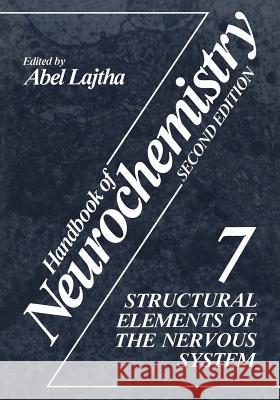Structural Elements of the Nervous System » książka
Structural Elements of the Nervous System
ISBN-13: 9781468445886 / Angielski / Miękka / 2013 / 710 str.
Neurochemistry, having the objective of elucidating biochemical processes subserving nervous activity, emerged as an application of chemistry to the of neurobiological problems as a post-World War II phenomenon. investigation However, only in the last 40 years has the chemical community recognized neurochemistry as a distinct, if hybrid, discipline. During this period great strides have been made. However, recently neurochemistry, along with neu- rophysiology, neuropharmacology, neuroanatomy, and the behavioral sci- ences, has emerged to form neuroscience, a new community of scientists with its own national society, journals, and meetings. Actually, this recently formed hybrid, neuroscience, is in the process of merging with another well-established discipline, molecular genetics (frequently called molecular biology, and itself a hybrid), which appears to have sufficient hybrid vigor to form yet a new community of scientists, which, for want of a more imaginative term, has been called molecular genetic neuroscience. Clearly, advantages resulting from such mergers or hybridizations accrue not only from the merging discipline (neurochemistry in this case) to the new community (molecular genetic neuroscience), but also in the reverse direction. This Foreword will be concerned primarily with examples of this latter process.











